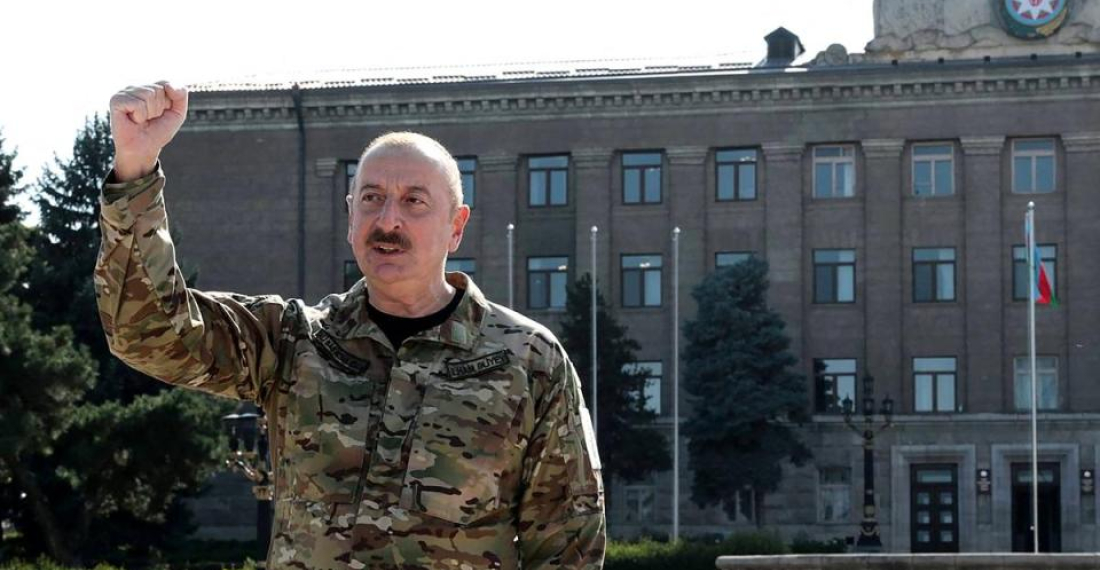The Karabakh conflict, which has persisted for the past century, appears to have reached its inevitable conclusion. For Azerbaijan, this marks the end of separatism and the restoration of sovereignty. For the Armenians, it signifies the end of a long-held belief in a policy of confrontation with Azerbaijan.
Tragically, this conflict has resulted in thousands of lives lost. While there is no realistic anticipation of its revival in the foreseeable future, there will still be factions within Armenian politics calling for war – perpetuating false hope of reclaiming what they perceive as 'lost'.
However, the Azerbaijani-Armenian enmity still lingers, and we must earnestly assess whether it is moving towards stabilization, de-escalation, settlement, or forging a new equilibrium.
To gain a comprehensive understanding of the available options and potential scenarios, we must examine the situation at the bilateral, regional, and global levels.
Bilateral Level: Stabilization primarily hinges on Azerbaijan's undeniable political dominance over Armenia, juxtaposed with the increasing instability within Armenia itself.
Regional Level: At this juncture, we confront the reality that all neighbouring countries, including Iran, Russia, Turkey, and Georgia, contend with multiple internal and external challenges. Consequently, a long-term settlement between Azerbaijan and Armenia would ideally involve a regional agreement. Such an accord would compensate for Azerbaijan's evident dominance by introducing a regional mechanism wherein countries like Iran, Russia, and Turkey can jointly establish a set of rules. It's worth noting that shortly after the 2020 war, President Aliyev proposed a cooperative format involving six states in the South Caucasus, encompassing Azerbaijan, Armenia, and Georgia, as well as Turkey, Russia, and Iran. This initiative aimed to bolster intraregional economic cooperation and create new transit links. Although President Aliyev temporarily halted this proposition after the start of the war in Ukraine, and what can be called failed three years of negotiations between Armenia and Azerbaijan, its significance has not diminished, making it a potentially favourable solution for all parties.
Global Level: The central question at the global level revolves around the role of major global players—whether their impact is positive, negative, destructive, or negligible. Regrettably, in numerous instances, actors such as France and the United States have pursued narrow, short-term interests in the context of the Azerbaijani-Armenian conflict. For instance, France's agenda regarding the conflict encompasses several elements: increasing French influence in Armenia, assuming the primary mediator role on behalf of the West (sidelining the USA, Germany, and others), excluding Turkey from the resolution process, and cultivating relations with Iran and Russia, provided they yield tangible benefits.
The U.S. stance has encountered fewer obstacles, yet it has often been influenced by prominent Armenian lobbyists in Washington.
China, for its part, maintains relative neutrality. However, India has recently displayed unusual activity in the region.
While one might assume India's heightened cooperation with Armenia is motivated by the Azerbaijan-Pakistan alliance, the situation is more intricate. India is rapidly evolving into a nationalist state with burgeoning regional aspirations, increasingly asserting itself in the ongoing dynamics.
In a nutshell, what is a solution? What would be the right way?
In summary, the solution lies in a regional agreement co-sponsored by major regional players. The feasibility of such an agreement remains uncertain, with growing awareness within Armenia that, as the weaker party, it stands to lose the most in continued instability.
Driven by fear, however, Armenia chooses the way of dragging into the conflict far away players, such as France, which in turn contributes to destabilisation.
The current situation drags the region into some kind of vicious circle. The three years that passed since the 2020 war were a bright example of such a circle, however, it was stopped by Azerbaijan in a lighting-style military operation in September 2023 and some new equilibrium emerged.
Will history repeat itself? We will see in the next few weeks and few months.







